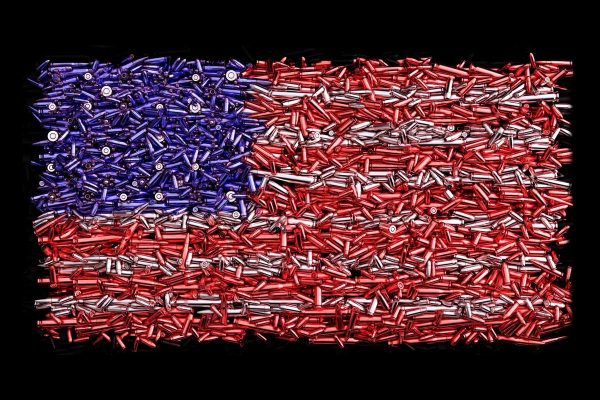Exploiting tragedies
The issue with glorifying war in movies
It is understood that wars are horrific, the dreading experiences veterans have faced are revealed in ways that make stomachs churn. Consequently, it is to no surprise that the movie industry has used the brutality of war as an opportunity to make action-packed movies.
The first war movie I watched was “Come and See”, which is an anti-war film that is set in Belorussia during World War II. The movie is described as a never-ending nightmare and is truly meant to depict the tragedies people dealt with during this grim time. After watching this, I began to seek out other movies like “Come and See”, ones that displayed the rawness and realness of war and what it does to humanity.
Instead, I discovered that there are numerous war movies that focus more on the heroic aspect of the soldiers rather than the terrors they faced. There is rarely any element presented on how soldiers are affected mentally, and if there is, it’s skimmed over. As captivating as war movies are, there is a prevailing issue with glorification and hero complexes that are portrayed in this genre.
The typical war movie includes gory or upsetting scenes that are hard to watch, which is necessary to demonstrate the typical combat that occurs. However, instead of showing how these horrific scenes heavily impact the soldiers and their emotional well-being, it is displayed as something that is honorable and celebratory. There is little to no awareness of warfare and what it actually is like. People watch these movies and view war as something that is worth going through despite all of the dark and horrific impacts.
The movie “American Sniper” is an infamous war movie and it is filmed wonderfully, but there are many scenes that depict the American soldiers as the primary “good guys”. This movie is set in 2003, and during this time America was engaging in war with Iraq due to the events of 9/11. The main character, Chris Kyle, is made out to be a war hero. Throughout the movie, he takes the lives of innocent people for the sake of saving American lives while demonizing the opposing side harshly. Even though Iraq was America’s enemy at the time, it is still not right to portray one side fully being in the right and the other side being fully in the wrong.
“American Sniper” does show aspects of the war being negatively impactful amongst soldiers, such as adding scenes that show Chris trying to go back to his life after the war and struggling with PTSD. However, it is conveyed as something that is noble and simply just part of his job, when in reality, it isn’t.
Another movie that blatantly glorifies war combat is “Red Dawn” which is set during the time of the Cold War. This movie is purposefully over-exaggerated in order to send off a message of how communists were viewed in this time. The plot follows three boys that repeatedly take down the “commies” through warfare. This movie is very unrealistic and implements the idea that it is honorable and realistic to insert oneself in times of war.
In movies such as “Stalingrad” and “Full Metal Jacket”, they do a good job of showing the emotional distress in the soldiers. As well as, showing the devastating impacts of war on civilians. These movies effectively depict the brutality war brings.
Another very well-made war film is “Good Morning, Vietnam”, a comedic movie that heavily criticized the Vietnam War and how America’s leaders and soldiers acted out of line throughout the war. The movie itself includes elements of irony while remaining historically accurate.
Overall, it’s possible for writers and directors to depict war accurately without creating a narrative that the perception of wars demonstrated in movies is realistic. It’s crucial to recognize how war movies can possibly lead to a false viewpoint of what war combat actually is.








